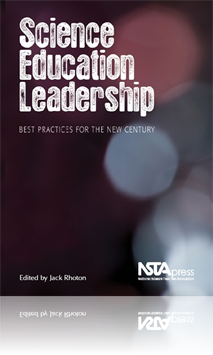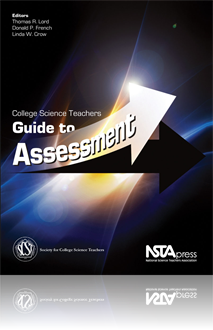All Book Chapters
Book Chapter
Science Communication and Public Engagement With Science
It is the responsibility of all who have a passion for science and science education to serve as ambassadors of science because we need as many great communicators of science as possible. The first section of this chapter provides useful tips for edu...
Book Chapter
The Many Faces of Leadership in a Complex Environment
While the full implementation of the leadership approach recommended in this chapter has many facets, the foundation of that leadership style is to “keep you eye on the prize.” That is, every decision should consider at its nucleus how it will su...
Book Chapter
Content Coverage in the Role of Instructional Leadership
The variability in content coverage is likely to produce differences in student learning outcomes. The authors use this variability to reinforce their view that the management of content coverage, including association time allocation, is among the m...
Book Chapter
The Role of Teacher Leadership in Science Education
Professional development activities deepen content knowledge, support inquiry-based teaching, help teachers tap into student thinking, and assist in implementing curriculum materials and interpreting assessment systems. This chapter examines teachers...
Book Chapter
Getting Results From Science Teacher Leadership: The Critical Role of Principals
There is growing evidence that teacher leaders and principals are indeed effecting-and perhaps-essential allies in leading schoolwide improvement in teacher effectiveness and student learning. This chapter opens with a detailed look at the empirical ...
Book Chapter
Developing and Sustaining Leadership in Science Education
It can be argued that the most important guiding force leading to a teacher’s continued improvement is having a good role model, such as a colleague who is an experienced leader. This chapter provides a detailed description of a master’s degree p...
Book Chapter
Technology Leadership for the 21st Century
This chapter addresses (a) how transformational leadership in the educational community is crucial for effective and appropriate infusion of educational technology as a fundamental part of K-12 education; (b) how educational leaders can create a robu...
Book Chapter
Change in Secondary Science Settings: A Voice From the Field
Learning science by inquiry is central to science education reforms. In today’s working world, students need skills for finding, organizing, and managing information. They also need rich skills for working with others and for communicating orally a...
Book Chapter
Building a Culture of Faculty-Owned Assessment
With so much at stake for both students and institutions, it is imperative that colleges and universities support faculty and others in comprehensive assessment efforts and act on changes suggested by assessment data. If higher education is to mainta...
Book Chapter
At Montana State University (MSU) a variety of strategies have been used to begin to quantitatively assess how students are learning in the science classroom. The author reviews in this chapter some of the work that has helped MSU craft quantitative ...
Book Chapter
Alternative Forms of Assessment for The College Science Laboratory
A basic definition of alternative assessment is any type of evaluation that does not use traditional forms of paper-and-pencil testing. Too often new forms of teaching and learning are coupled with traditional forms of student assessment rather than ...
Book Chapter
Survey Instrument Validation: The First Commandment of Educational Research
Survey instrument validation may be the most difficult task for a scientist starting to conduct educational research. A survey that is preceived to be inadequately validated will generally be rejected for publication, but there is little guidance on ...
Book Chapter
The past two decades have witnessed a dramatic shift in how science is taught. Electronic portfolios—hereafter referred to as e-portfolios—represent one possible way to bring assessment into alignment with technology-based instruction. In this ch...
Book Chapter
The integration of math, science, and technology (MST) into robust inquiry-based learning opportunities is a tall order for any educator. However, it is critical to do so throughout the learning process. This chapter addresses some of the deficiencie...
Book Chapter
Gauging the Nature of Science (NOS): An Alternate Form of Assessment
Science teachers of all disciplines can use students' NOS (nature of science) scores as an alternate form of assessment. In addition to traditional forms of assessment like exams and quizzes, NOS levels can truly indicate students' understanding of s...




